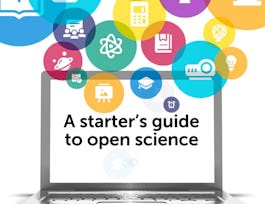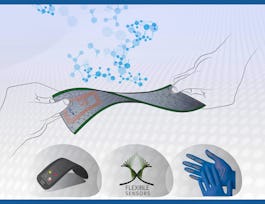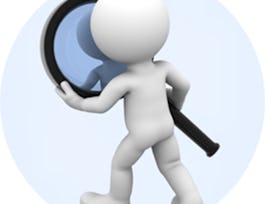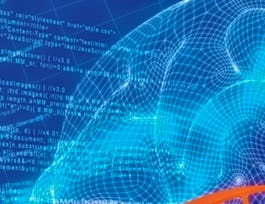What does it take to advance a new drug from the laboratory bench to the patient’s bedside? Historically, drugs were discovered serendipitously and were usually isolated from natural sources. Today, drug discovery efforts take many years and cost hundreds of millions of dollars. They also require the input of dozens of specialists from a multitude of backgrounds to ensure that therapeutic molecules are efficacious and safe.



Introduction to Small Molecule Drug Discovery & Development

Instructeur : Dr Susan Winks
4 884 déjà inscrits
Inclus avec 
(67 avis)
Expérience recommandée
Ce que vous apprendrez
The different stages of drug discovery and development, including the tools and technologies influencing how we think about new medicines.
Investigate drug metabolism, pharmacokinetics and drug safety all the way to clinical development and beyond from the needs of the patient.
Compétences que vous acquerrez
- Catégorie : Drug Development
- Catégorie : drug discovery value chain
- Catégorie : drug safety
- Catégorie : Pharmacokinetics
- Catégorie : metabolism
Détails à connaître

Ajouter à votre profil LinkedIn
8 devoirs
Découvrez comment les employés des entreprises prestigieuses maîtrisent des compétences recherchées


Obtenez un certificat professionnel
Ajoutez cette qualification à votre profil LinkedIn ou à votre CV
Partagez-le sur les réseaux sociaux et dans votre évaluation de performance

Il y a 4 modules dans ce cours
This week covers an introduction to the drug discovery and development process. It starts off by considering the patient, as the ultimate beneficiary of new and improved drugs, to ensure that they are kept at the centre of and integrated into all subsequent decision-making. Through a case study, the concept of an unmet medical need is introduced and provides a backdrop for understanding further critical concepts which underlie drug discovery and development. An overview of various drug discovery strategies is presented, along with approaches to screening and hit discovery. Various scientific, medical and humanitarian considerations need to be taken into account if effective delivery of new and improved drugs is to be achieved. Some of the challenges are presented, and a panel discussion highlights different, and similar, perspectives in the academic and industry approach to drug discovery projects.
Inclus
9 vidéos9 lectures2 devoirs3 sujets de discussion
This week explores the early phases of drug discovery. As outlined previously, the starting point is always the needs of the patient and their biomedical realities. Understanding disease biology is a critical next step and sets the scene for mapping the context for immune response and the origins of ill health and how the progression of disease can be controlled or arrested. Case studies, particularly in the context of tuberculosis (TB), demonstrate the rationale behind molecular biology studies of the pathogen and the host. Key concepts such as the essentiality and vulnerability of targets and their 'druggability' are introduced. Medicinal chemistry drives the chemical modification of drug-like molecules to improve their activity and safety. The various tools and approaches that the medicinal chemist has at their disposal, including the value of the screening cascade, will be discussed.
Inclus
10 vidéos4 lectures2 devoirs1 sujet de discussion
This week picks up the drug discovery and development story at the point at which promising drug candidates have already been identified. The crucial importance in this phase of investigating the pharmacokinetics and pharmacodynamics of potential drugs is introduced, as these are key parameters for the effectiveness of a new drug and a positive patient experience. These properties have a bearing on bioavailability and metabolic processes and provide a backdrop for animal model studies, and the extent to which the biological properties of the drug are retained in mammalian systems. The ethical considerations and technological advances pertaining to in vivo testing are discussed. Drug testing, safety profiling, and toxicology and efficacy in preparation for clinical trials are presented, and an introduction to process optimization and API manufacturing is also discussed.
Inclus
10 vidéos4 lectures2 devoirs1 évaluation par les pairs
This week outlines and examines the clinical development phase. Once a drug candidate has successfully progressed through the phases outlined previously, it qualifies for filing as an Investigational New Drug (IND) and a Clinical Trial Application (CTA) and the accompanying review process. An overview is given of the regulatory framework governing this, and a description of the various phases of clinical trials. The extensive teamwork that is required during the clinical trial is outlined, as well as the various role-players in this process, and some of the critical aspects, such as the submission and approval process, protocols that need to be established, informed consent and site management, are described. Finally, we look to the future and consider how new technologies are changing the face of drug discovery and development and how this may ultimately bring newer and safer medicines to the patient more rapidly.
Inclus
10 vidéos8 lectures2 devoirs
Instructeur

Offert par
Recommandé si vous êtes intéressé(e) par Basic Science

Erasmus University Rotterdam

Technion - Israel Institute of Technology

Johns Hopkins University

University of Minnesota
Pour quelles raisons les étudiants sur Coursera nous choisissent-ils pour leur carrière ?




Avis des étudiants
67 avis
- 5 stars
77,94 %
- 4 stars
20,58 %
- 3 stars
0 %
- 2 stars
1,47 %
- 1 star
0 %
Affichage de 3 sur 67
Révisé le 2 août 2024
most helpful course to improve the skill in area of pharma field .
Révisé le 9 juil. 2024
THIS COURSE ON THE REAL BASIS ENLIGHTED MANY ASPECTS IN DRUG DISCOVERY AND DEVELOPMENT.
Révisé le 1 avr. 2024
Great course structure and outstanding explanation of the hard things in easy language.

Ouvrez de nouvelles portes avec Coursera Plus
Accès illimité à 10,000+ cours de niveau international, projets pratiques et programmes de certification prêts à l'emploi - tous inclus dans votre abonnement.
Faites progresser votre carrière avec un diplôme en ligne
Obtenez un diplôme auprès d’universités de renommée mondiale - 100 % en ligne
Rejoignez plus de 3 400 entreprises mondiales qui ont choisi Coursera pour les affaires
Améliorez les compétences de vos employés pour exceller dans l’économie numérique
Foire Aux Questions
Access to lectures and assignments depends on your type of enrollment. If you take a course in audit mode, you will be able to see most course materials for free. To access graded assignments and to earn a Certificate, you will need to purchase the Certificate experience, during or after your audit. If you don't see the audit option:
The course may not offer an audit option. You can try a Free Trial instead, or apply for Financial Aid.
The course may offer 'Full Course, No Certificate' instead. This option lets you see all course materials, submit required assessments, and get a final grade. This also means that you will not be able to purchase a Certificate experience.
When you purchase a Certificate you get access to all course materials, including graded assignments. Upon completing the course, your electronic Certificate will be added to your Accomplishments page - from there, you can print your Certificate or add it to your LinkedIn profile. If you only want to read and view the course content, you can audit the course for free.
You will be eligible for a full refund until two weeks after your payment date, or (for courses that have just launched) until two weeks after the first session of the course begins, whichever is later. You cannot receive a refund once you’ve earned a Course Certificate, even if you complete the course within the two-week refund period. See our full refund policy.

